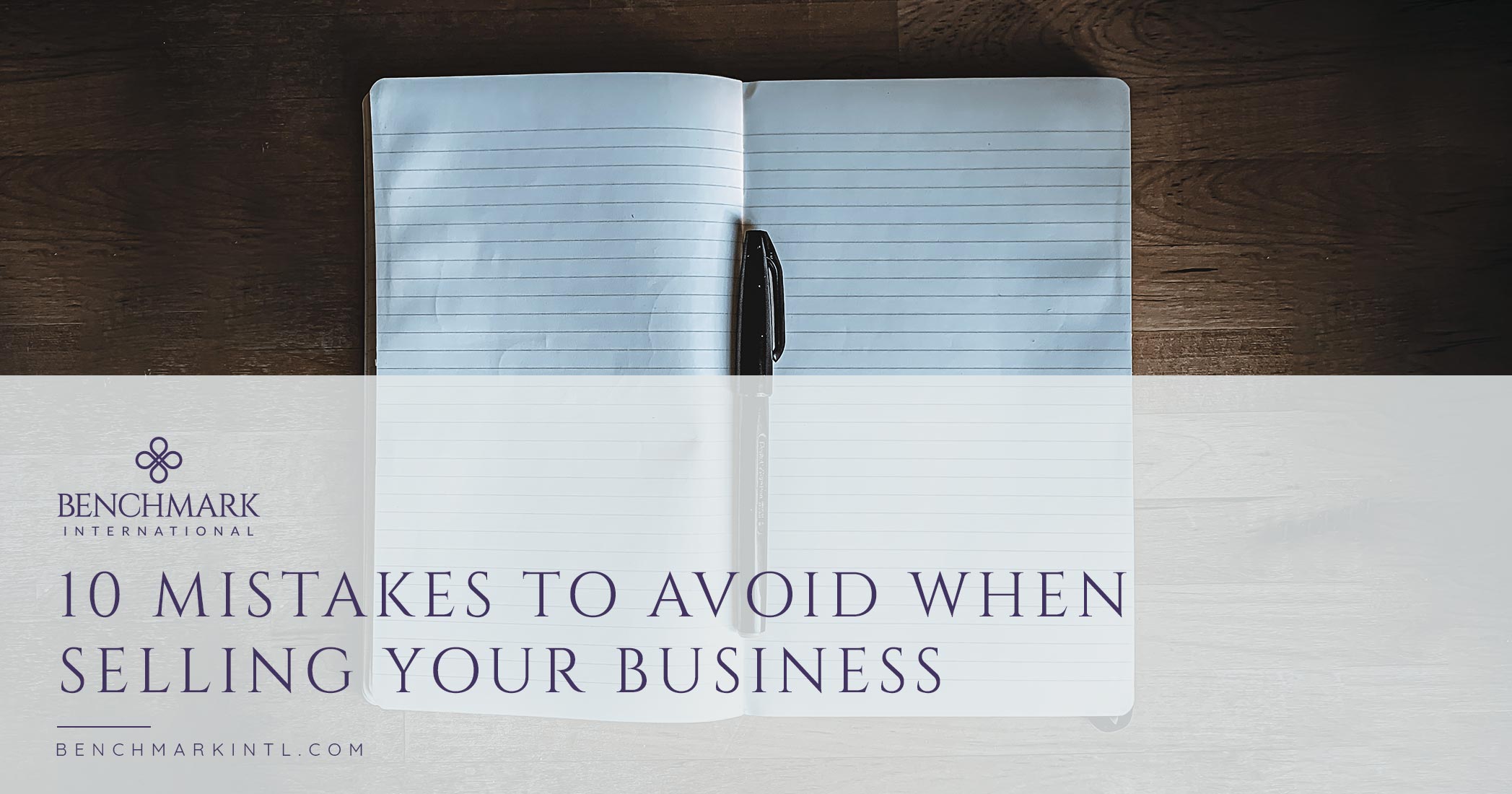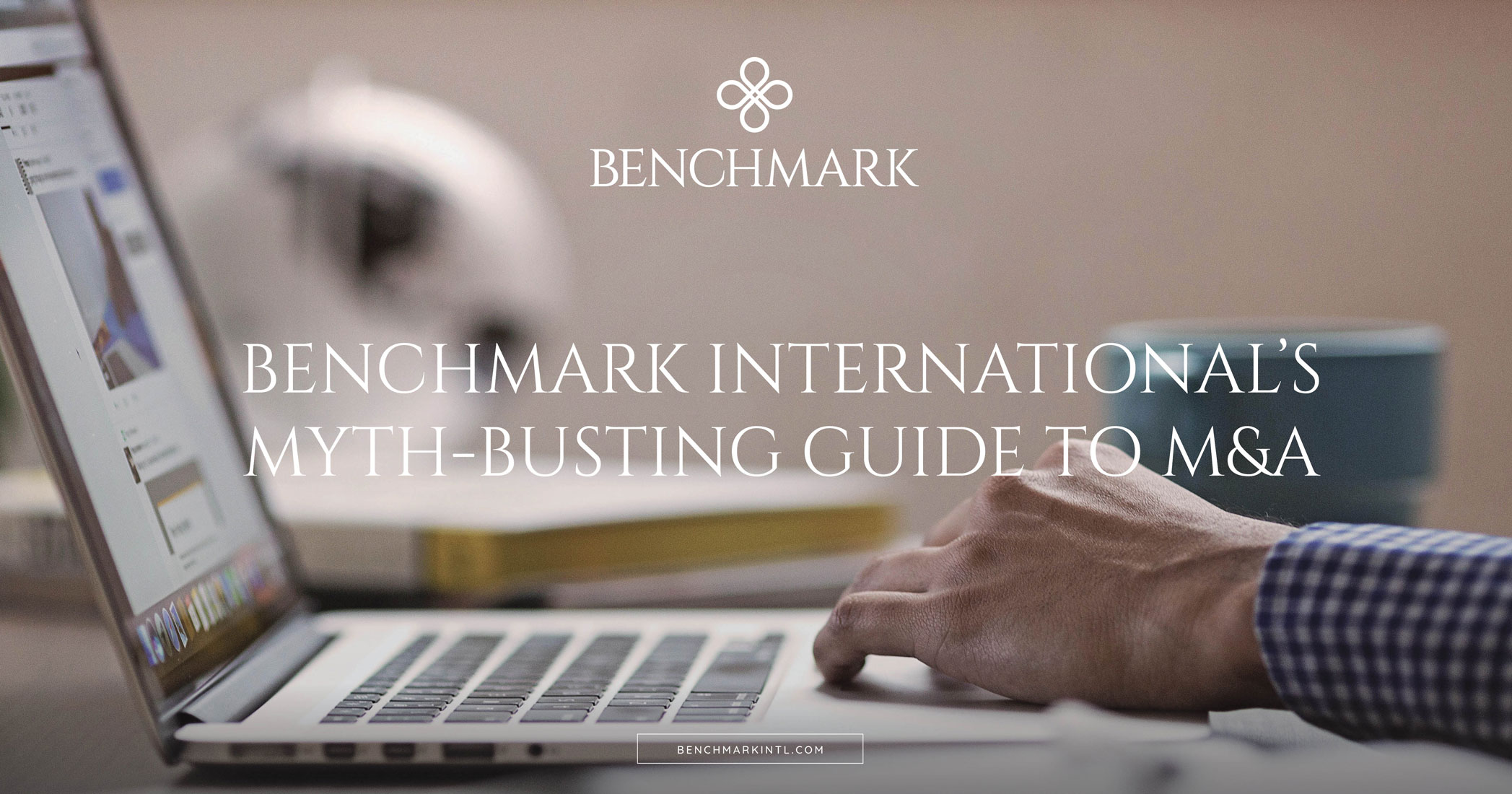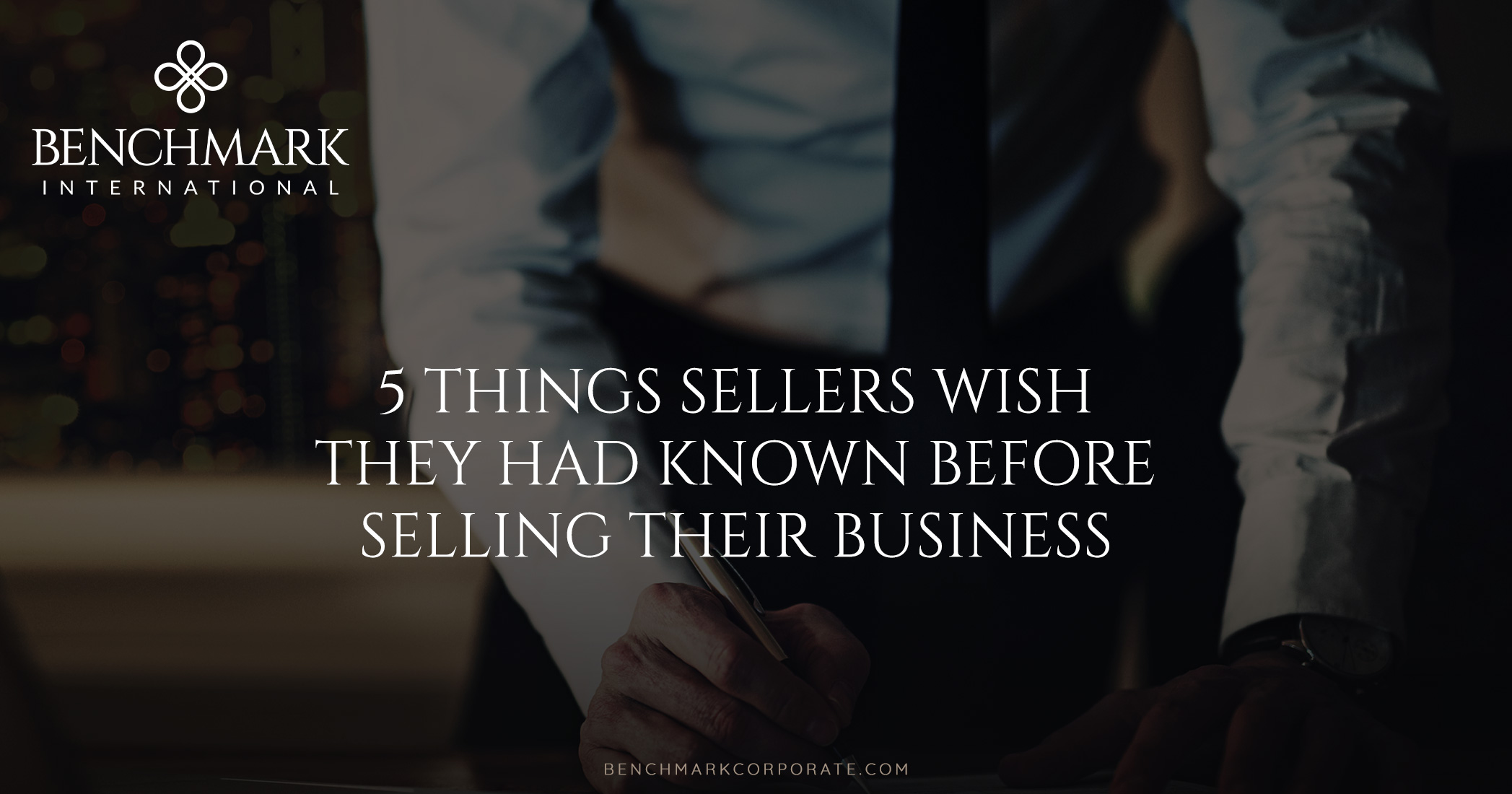The decision to sell your business can be incredibly difficult. In addition to the financial capital you have invested in your company, you have incurred an intangible amount of “sweat equity, through the hard work spent building your business and the natural emotional investment made in the company. That’s why, once the decision to sell has been made, it is imperative that proper preparation is put in place to ensure your goals are met once your company is brought to market. Owners who approach exit planning systematically and methodically are more likely to maximize the value of their business and sell on their own terms.

Financial Preparations
The primary factor influencing a company’s value is its earnings. It is essential that the company’s financials present potential buyers with a clear story, allowing them to fully evaluate the company’s production. Presenting your business as efficient, with solid cash flows, a clean balance sheet, and low expense requirements, will position it as an attractive acquisition. There are several steps a business owner can take when reassessing their financials.
First, small private companies’ income statements are typically geared towards minimizing the company’s taxable net income. Although beneficial to the business owner, this approach is counterproductive in the context of a sale. As such, discretionary expenses that are not critical to operations and have not, or will not, impact revenues should be identified and eliminated. This could include owner/shareholder expenses, family-member salaries, fringe benefits or exorbitant perks, and extraordinary one-time expenses. Not only will this exercise maximize net income, but it will also present a normalized picture of the business to acquirers.
Second, organizing your balance sheet is key in preparing for a transaction. Sellers should remove all assets unrelated to their business from the balance sheet, as well as identify excess assets that could be converted to cash without adversely impacting the business. A buyer will not be interested in paying for excess inventory and, as such, this presents an opportunity for the seller to increase the total yield from the sale.
Third, it is important that a seller fully understands the company’s working capital before engaging a buyer. Working capital is often a point of negotiation between the buyer and seller. Buyers expect to receive a “normal” level, and often use low amounts of working capital to drive down the total cash paid at close. Managing working capital requires both time and effort, but it can result in greater efficiency and can lower the total level of working capital buyers expect to have delivered.
Lastly, the reliability of a company’s financial statements is critical in influencing a buyer’s decision. It is recommended that, before going to market, a seller contracts an independent accounting firm to review or audit their company’s financial statements. This will ensure the company is presented in an accurate manner, and will instill a sense of confidence in potential buyers, resulting in a greater level of trust and better valuations.
Operational Preparations
A company’s operations are just as important as financials. Potential buyers will seek to comprehensively understand the business practices behind a company’s earnings. A well-run business, with efficient operations, and good growth prospects will appear more attractive to any buyer. Unfortunately, businesses often have operational issues that could jeopardize a transaction. It is necessary for sellers to identify these issues before going to market and, in any case where the issue cannot be resolved, prepare to address it in a forthright manner.
For example, although a company’s clientele is not directly reflected in its financial statements, a company’s book of clients is a critical point of examination for a buyer. An ideal business has a broad customer base with little customer concentration. Dependency on a limited number of large customers could significantly reduce the marketability of a company. In these cases, it is important that the seller address this issue head on by either diversifying the company’s clientele before going to market, or developing a narrative to mitigate this issue and reassure buyers.
Additionally, a business owner’s level of involvement in the company is an important factor to buyers. They are acquiring the business, not the seller. As such, buyers will want to see a strong supporting management team, indicating the business will continue to be successful long after the owner has left. As a business owner prepares to go to market, it is key that they evaluate their role in business operations and implement a succession plan.
Lastly, it is imperative that a business owner continues to grow revenues, as well as develop a realistic growth strategy. Buyers are purchasing the current and future cash flows of the business; historical growth, as well as a growth strategy with expansion opportunities, provides a blueprint for what’s to come. Presenting buyers with growth plans that are reasonable and achievable validates the credibility of management, and demonstrating that credibility through continued revenue growth illustrates the quality of the business.
For many business owners, selling a business happens once in a lifetime. When dealing with such a monumental event, a little more preparation today is certainly worth the added value tomorrow. Proper planning and advanced preparation is critical in order to maximize the value of your business and the probability of closing a transaction. Additionally, advice from seasoned professionals can provide you with savings and add significant value. At Benchmark International, we are proud to provide world-class mergers and acquisitions services, and we work hard to ensure your company’s value is maximized and your business is sold on your terms.
Author:
Theodore Pince
Associate
Benchmark International
T: +1 (813) 898 23557
E: pince@benchmarkcorporate.com
READ MORE >>
 Benchmark International
Benchmark International  Benchmark International
Benchmark International 













































